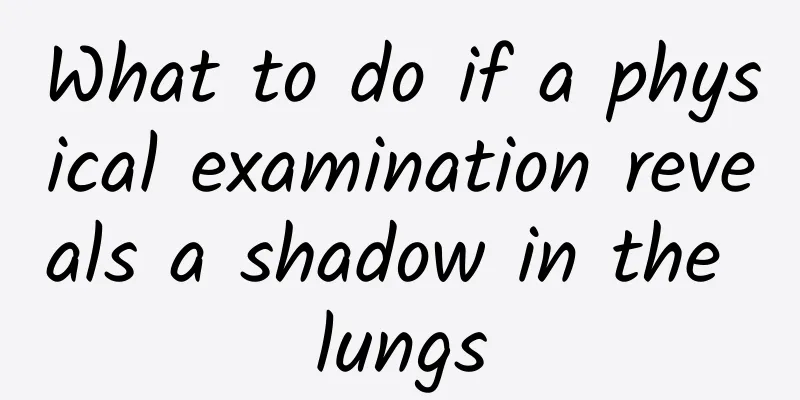What to do if the forehead is big and red and swollen

|
Large red and swollen lumps on the forehead are generally caused by bacterial folliculitis. If you want to eliminate the large lumps, you need to completely cure the bacterial folliculitis. Bacterial folliculitis can cause great pain to people, such as repeated itching of the affected area, hair loss, and even sepsis. So, how to treat bacterial folliculitis? The following is a detailed introduction for you! 1. Introduction to symptoms
Bacterial folliculitis is an infection of the superficial or deep parts of the hair follicles. Staphylococcus aureus is the most common pathogen causing folliculitis. Gram-negative bacillary folliculitis is sometimes seen in patients with acne vulgaris treated with long-term oral antibiotics, and Pseudomonas folliculitis is often associated with hot tubs and surfing. Predisposing factors include impermeable skin, maceration and excessive moisture, shaving or plucking, hair waxing, topical corticosteroids, hot and humid climates, and diabetes mellitus. Because patients with atopic dermatitis have a high rate of skin colonization with Staphylococcus aureus, they are at increased risk for folliculitis. 2. Clinical manifestations It initially appears as a red, solid papule consistent with the opening of the hair follicle, or it starts with follicular impetigo, and then rapidly develops into a papule-pustule, with the hair running through the middle and redness and inflammation all around, followed by drying and scabbing. It heals after the scab falls off in about a week, but it may recur and not heal for many years. Some may also develop into deep infection, forming furuncles, carbuncles, etc., which generally do not leave scars. There are many rashes, but they are isolated and scattered, and there is mild pain. In adults, it mainly occurs in hairy areas, while in children, it is more common in hairy areas. The rashes can sometimes merge with each other, and small patches of baldness may remain after healing. 3. Specific hazards 1. Repeated itching and discomfort: The subjective symptom of bacterial folliculitis is itching. Bacterial folliculitis on the head can stimulate the hair roots and cause severe pain, bringing physical torture to the patient. If not cured for a long time, chronic bacterial folliculitis may develop. 2. Development to deeper parts: It can cause perifolliculitis, called furunculosis. Multiple and repeated attacks are called furunculosis. In severe cases, there may be swollen lymph nodes, fever, headache, and even sepsis or septicemia. 3. Hair loss: Bacterial folliculitis occurring on the scalp can cause permanent hair loss. 4. Bacterial folliculitis occurs on the neck: the skin lesions appear as papillary hyperplasia or form scar nodules, which are difficult to cure.
5. Treatment Antibiotics can be used as appropriate. 1% neomycin ointment, mupirocin ointment or 2% iodine tincture can be applied topically. Ultraviolet radiation can also be tried. For patients with recurrent attacks, self-made vaccine or polyvalent staphylococcal vaccine can be tried. |
<<: Varicose arteries are caused by
>>: What is the cause of the red, swollen and itchy big pimples?
Recommend
How to treat pulmonary arterial hypertension with traditional Chinese medicine?
Pulmonary hypertension is not uncommon in life, e...
Things to note when doing a painless abortion
There are many things to pay attention to when do...
How to correct flat feet in children
Flat feet are quite common in life. This is a sym...
Tips for reducing dark spots
The appearance of pigmentation makes many women d...
Can spinach and leek be eaten together?
As we all know, spinach and leek are two common i...
Is it cerebral palsy if the baby's feet are shaking?
Sometimes babies have shaking legs, which is usua...
What are the dental procedures?
Dentistry is a very important medical department ...
What are the symptoms of pulmonary bullae?
If there are bullae in the lungs, pneumothorax ma...
Quick tips for curing itchy scalp
Itchy scalp is quite common in life. There are ma...
These four foods are the best for nourishing the kidneys and moistening the lungs
Nowadays, more and more people are eating foods t...
Is the flu vaccine necessary?
The flu vaccine is a vaccine used to prevent infl...
How to determine if you have a hamstring strain?
It is very common for many people who love sports...
Women's breast enhancement methods, diet is more effective
Breast enhancement is an eternal topic among wome...
Why does a man have pain in his lower body?
For men, if there is pain in the lower body, that...
What are the traditional Chinese medicines for blood circulation?
For us, when treating diseases, many of us would ...









